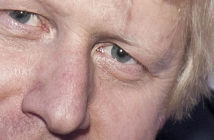Nigel Farage sailed a boat down the Thames yesterday in an attempt to highlight the plight of British fishermen, conveniently forgetting that he did nothing to protect the industry while on the EU fisheries committee.
Nigel Farage has said that the UK fishing industry has been “gutted due to the EU” and that the institution was out of touch with the problems facing Britons fishermen.
However, according to research by Greenpeace “over the three years that Nigel Farage was a member of the European Parliament Fisheries Committee, he attended one out of 42 meetings”.
Farage claims that EU policies are a lead weight on UK industries, but if that was the case then he has made no attempt to improve the situation and ease the burden on British workers.
If Farage really wanted to help the fishing industry it would have been Farage that organised the “Fish Fight” campaign started by River Cottage’s Hugh Fearnley-Wittingstall that gained more than 870,000 signatures and convinced the EU to reform its wasteful discard policy. Change is perfectly possible to fix some of the issues with the EU if politicians act rather than campaign.
To add insult to injury, it appears that the trawler Farage used for his publicity stunt on the Thames “was caught up in the UK’s largest ever fraud involving illegal catches of fish and is now partly owned by one of the richest fishing barons in the country”, according to another report from Greenpeace.
Another Brexit campaigner to claim to understand the problems facing British fisherman is Michael Gove, who has often repeated the claim that the introduction of the EU’s Common Fisheries Policy caused hardship in his family and forced his father to sell his fishing business. However, his own father has since denied these claims in a phone interview with the Guardian.
The Leave campaign seem very capable of making persuasive arguments about the faults of the European Union, but when their claims are dismissed by their own family and they do not act to solve the issue when they have the power to do so, why should the British public believe they are telling the truth about a better life post-Brexit.




